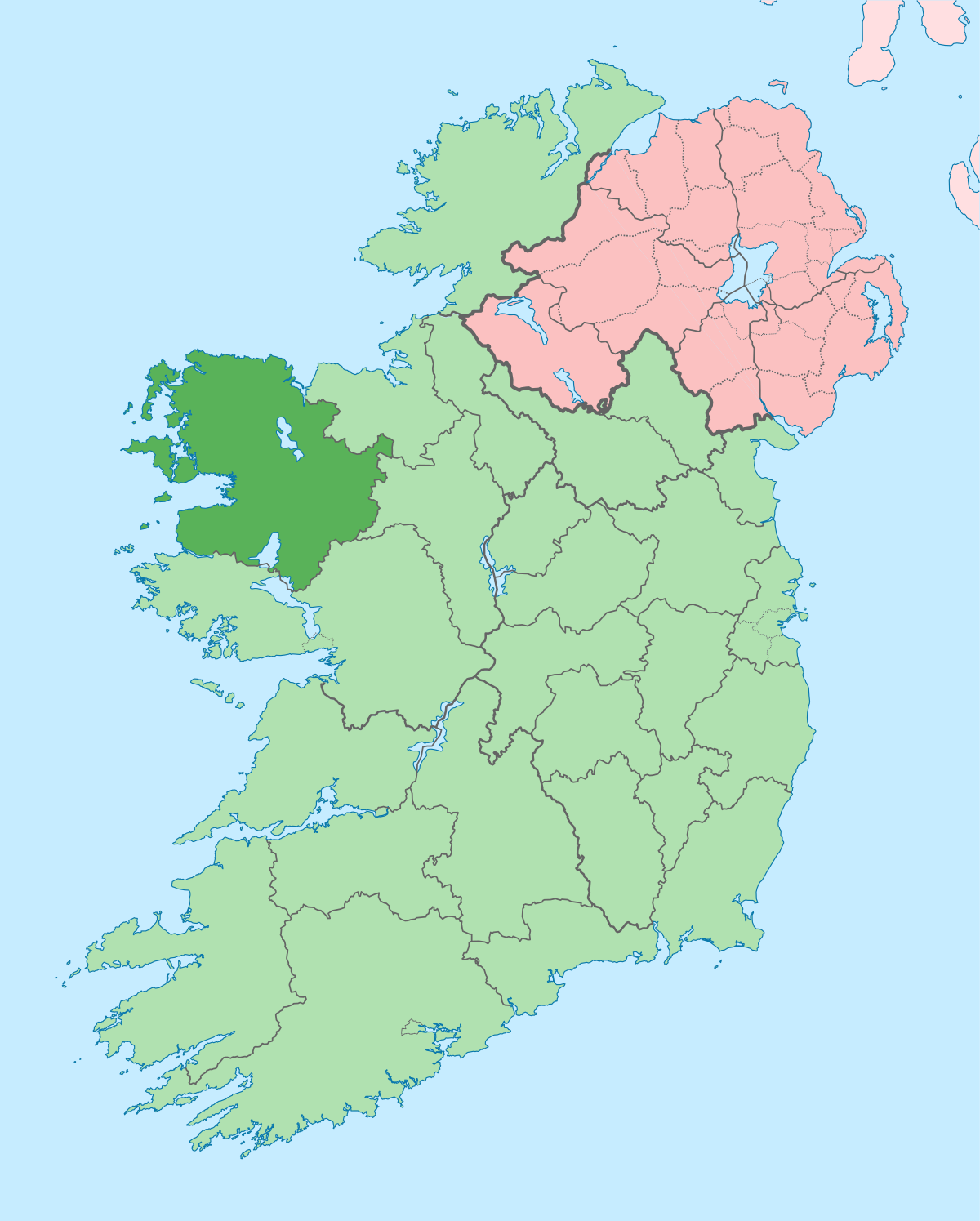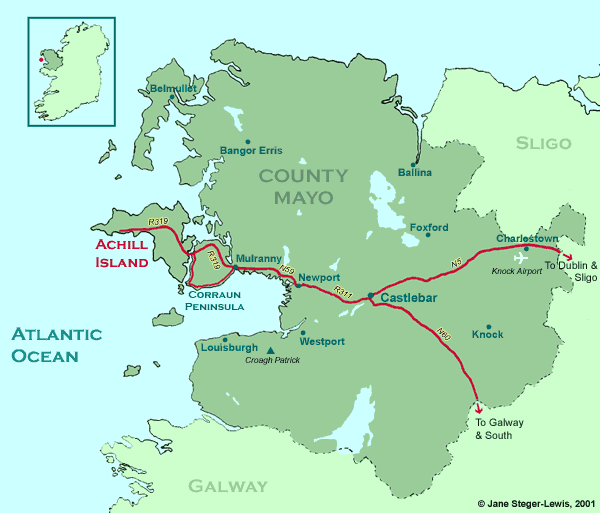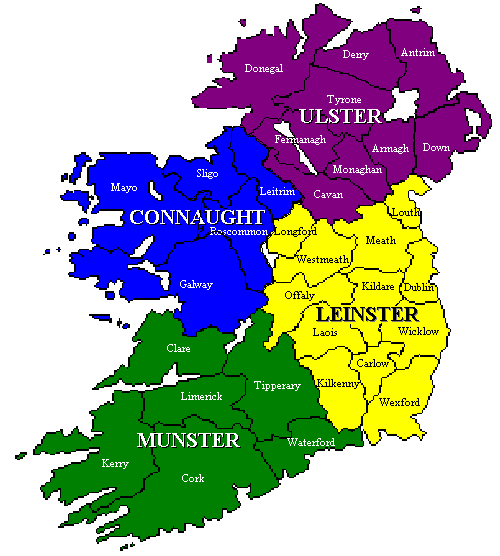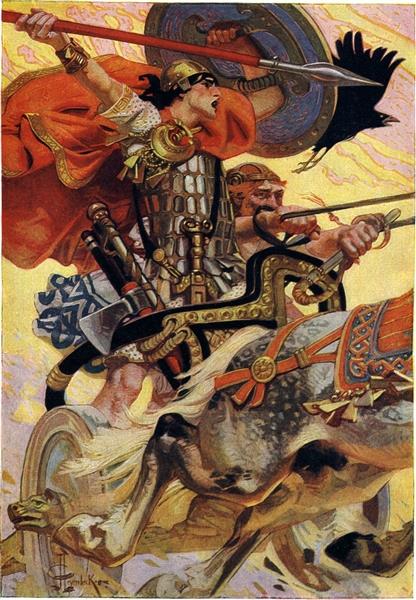The Playboy of the Western World — Background
Synge was inspired by his time spent on the Aran Islands, off the west coast of Ireland. While it is based on a historical incident, Synge's refusal to bow to the theatrical conventions of the time — audiences expected to see their contrymen, especially the working poor, portrayed as noble and hard-working while beset by calamities beyond their control. They liked their women pure and angelic, their men with heads bloody yet unbowed, and their children impish yet basically good. Synge's poetic yet realistic take on the manners and mores of Irish life angered many. There were contrived complaints that the play was indecent, and more substantial reservations based on its promotion of negative stereotypes.
But some historical distance has given us the ability to see this play as Synge's masterwork, an intricate maypole dance addressing the idea of the "other," the allure of danger, the growth of self-awareness, and the unspoken yet overbearing power of unseen social institutions.
The Irish Literary Revival
From around 1890, the Irish Literary Revival focused on creating and promulgating a specific Irish identity, hoping to give rise to a sense of Irish independence and the ability to have the Irish define themselves. So they opposed themselves to the British colonial stereotypes of the “Celtic” races. This was done through the promotion of the uniqueness of Irish folk tales and literature, the idea of "de-Anglicizing" Irish life, and the recovery and usage of the Irish language. WB Yeats, Lady Augusta Gregory, and Edward Martyn established the Irish Literary Theatre in 1897 to “bring upon the stage the deeper thoughts and emotions of Ireland.” They were attempting to be apolitical, but that goal was almost impossible, given their other goals. The Irish Literary Theatre was superceded by their founding in 1904 of the Abbey Theatre in Dublin.
The West
While there aren't great cultural divisions between the eastern and western regions of Ireland, there are some differences in attitudes. the eastern and western regions of the country in general. The east is dominated by Dublin, the capital and economic center of the island. A disproportionate chunk of the entire country’s population, money, activity, politics, attention, etc gravitate around that as a result. The West is generally more sparsely populated and less developed. Yeats claimed that he advised Synge to leave his flat in Paris and spend time in the west of Ireland, where, he claimed, Synge could experience the "real Ireland."

Ireland, with County Mayo in dark green

County Mayo

Christy is from Munster, south of County Mayo

J. C. Leyendecker - 1911
The Playboy Riots
When Playboy premiered at the Abbey Theater in Dublin on January 26, 1907, playgoers expected something different than the English Stage-Irishman buffoon. They wanted an Irishman without any serious flaws, a West-of-Ireland peasant embodiment of Irish virtue and purity. But they got drunkards and priest-panicked wimps. So who does the audience side with, the murderer or the idiots?
Ironically, the revival of the Irish language and traditions, so closely tied to the Abbey at the turn of the century, spurred these desires. But the Irish Literary Revival contained contradictions, and it was Synge's notice and tweaking of them that might have been at the heart of the movement against his play. Revival Literature created the culturally ennobling idea of a perfect peasant class, and had brought back into prominence a significant Irish cultural myth, the story of Cuchulainn. These images were behind their claim for independence from Britain. But when the rubber hit the road, Nationalists also excused, justified, and even glorified the use of senseless violence to consolidate their own political agenda. One obvious example is the idea of Republican blood sacrifice, done for the good of Ireland, and prominent in works like Cathleen ni Houlihan — by the leading lights of the Revival, Yeats and Lady Gregory.
You can see why the play might make some uncomfortable. Irish Catholics would have a problem with Synge's portrayal of the Church as an unseen hand with outsized influence on the lives of believers. And there's also the overt sexuality of Pegeen and the progressive mythologization of patricide, which is a rebellion against the God-given order (see Paul) and veers into the Pagan profane. Irish nationalists were upset by Synge's transgressions against the ideal version of the Irish peasant that had been fetishized for so long. More interestingly, however, was a single line that parodied the primary hero and figurehead of the Irish literary revival, Cuchulainn. Their suppositions were based on a connection between Christy and Cuchulainn, but they thought that Synge was connecting the heroism of Cuchulainn with the acts of senseless violence and foundless adoration performed by these peasants.
Sinn Féin leader Arthur Griffith described the play as "a vile and inhuman story told in the foulest language we have ever listened to from a public platform." He also perceived it as a slight on Irish womanhood. His pretext for this perceived slight was in the line "a drift of females standing in their shifts" (a shift is a woman's slip or chemise). A significant portion of the crowd rioted, causing the remainder of the play to be acted out in dumb show. However, it may be that Griffith wasn't so offended by the language, or by the affront to Irish women, but by Synge's lampooning of Cuchulainn standing against a range of foes in battle.
Notable personages tried to calm those who would riot. Standing in front of the audience, a "rotund and determined" Lady Gregory (founder of the Abbey) urged the actors to “Keep playing." But the boos and catcalls wer so loud that the rest of the play had to be acted out in dumb show, and the only line the audience heard was Pegeen’s final one: “I’ve lost the only playboy of the western world.”
Lady Gregory quelled the rioters two nights later when she arranged for Theodore Roosevelt, the former US president just two years out of office, to attend the performance. The audience applauded Roosevelt and his enjoyment of the play won them over.
The fact that the play was based on a story of apparent patricide also attracted a hostile public reaction.
The term shift was used before, by Hyde and Tennyson.
The rioters ignored a number of signifcant matters in the play:
- Glorification of Ireland through its love of poetry
- Elevated rhetoric
- Deep and traditional tragic themes (an ironic inversion of Oedipus Rex)
- The romance of a love affair
- The theme of liberation and freedom
Contemporary accounts of the riots
| "Prosecutions in the Police Courts" The Irish Times, 21 January 1907 |
"Public Amusements: Abbey Theatre" The Irish Times, 28 January 1907 |
"'The Playboy of the West': Disturbance at the Abbey Theatre" The Irish Times, 29 January 1907 |
| Letter: "An Impression of 'The Playboy'" The Irish Times, 29 January 1907 |
"'Playboy of the West': More Disturbances" The Irish Times, 30 January 1907 |
"That Dreadful Play" The Irish Times, 30 January 1907 |
| Untitled Editorial The Irish Times, 30 January 1907 |
"'The Playboy of the Western World': More Disturbances at the Abbey Theatre" The Irish Times, 31 January 1907 |
Letter: "'The Playboy'" The Irish Times, 31 January 1907 |
| Display Ad The Irish Times, 31 January 1907 |
"'The Playboy of the Western World': Comparative Quiet at the Abbey Theatre" The Irish Times, 1 February 1907 |
"The Abbey Theatre" The Irish Times, 4 February 1907 |
| "The Freedom of the Play: Discussion at the Abbey Theatre" The Irish Times, 5 February 1907 |